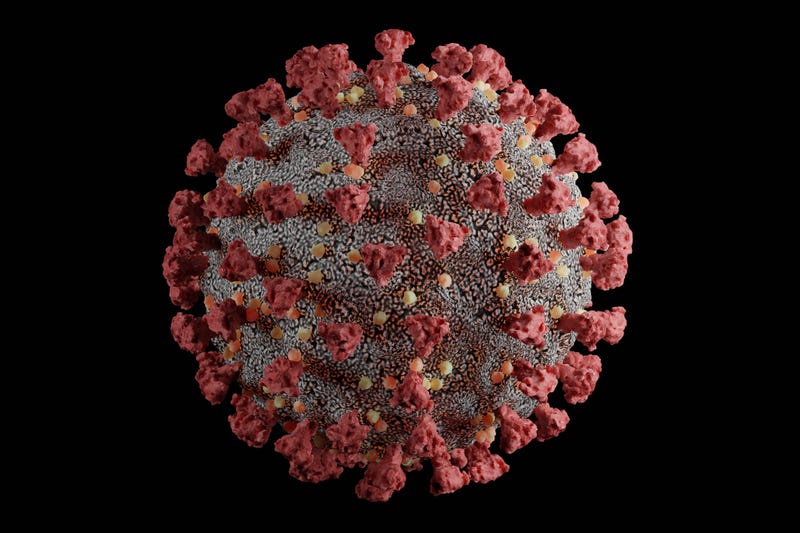
It's well known at this point how COVID-19 can lead to long-term changes in people's bodies, including cognitive function.
Health experts are still researching the various long-term ways COVID-19 can impact cognition, including various well-known side-effects, like brain fog or loss of smell or taste.
Around 85% to 100% of people who have contracted COVID-19 report a change in their sense of smell or taste, according to Dr. Sandeep Robert Datta, an associate professor of neurobiology at Harvard Medical School on KCBS Radio's "Ask an Expert" on Friday with Holly Quan and Jason Brooks.
A large portion also reported feeling diminished ability to perform certain tasks or think clearly, he said.
"Scientists are increasingly finding clues about how the virus might influence neural circuits in your brain in a way that might be related to brain fog," said Datta.
Cognitive function, smell, taste, are most likely affected while other senses, like hearing, are not because COVID-19 is a respiratory virus. The nose and mouth are the first initial points of contact people can make with the virus, by breathing it in.
"It turns out the cells that live inside your nose, many of them are really infectable by the virus," he said.
And the parts of the brain that seem to be affected most by the virus are the areas connected to the sense of smell.
"What's interesting about that is that it’s possible when you regain your sense of smell, maybe a lot of that gets better, in your brain," said Datta.
There still hasn't been enough research yet to concretely determine what these changes might be and how they might get better, he said, but there is hope that at least some of these changes could be reversible.
Although many people have regained their sense of smell weeks or even months after their initial infection, some people who were infected at the very beginning of the pandemic are just now getting it back.
This suggests that there is a chance people will recover from other changes, like brain fog as well, but researchers are still gathering more data on that, he said.
Brain fog presents a trickier problem than loss of smell. Scientists and doctors are still working on treatments for the neuroinflammation that occurs, said Datta.
There is research that suggests genetics may play a role, that some people's nervous systems are more malleable to change because of the virus than others.
"There's definitely a lot of work around the idea that maybe some people, because of the genes that they have, are just more susceptible," he said.
"But that's emerging science," he said. "We'll learn more about that as time goes on."
LISTEN on the Audacy App
Sign up and follow Audacy
Facebook | Twitter | Instagram

